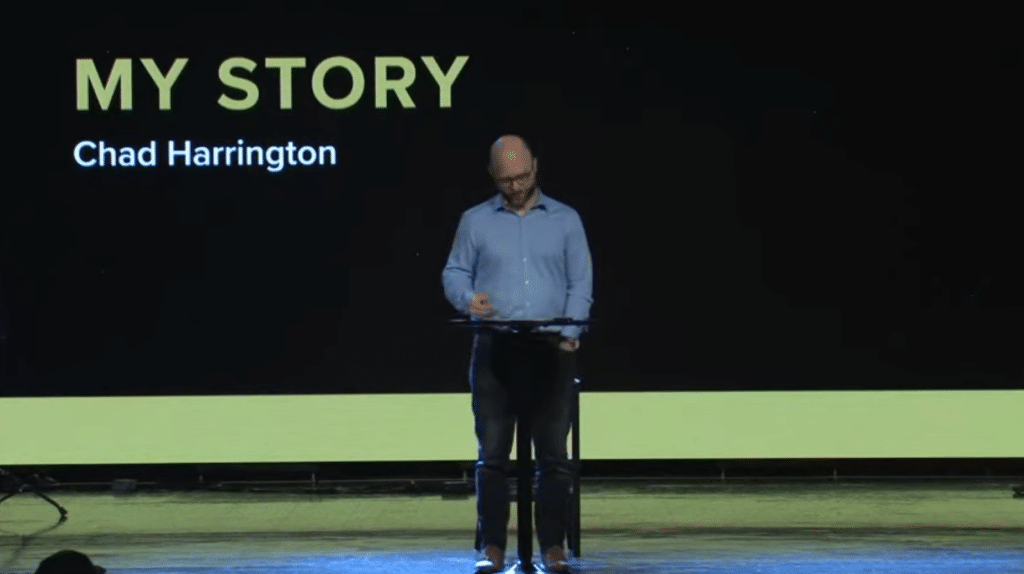Chad Harrington and Daniel McCoy share about how you can disciple others who seriously question their faith during Christian deconstruction.
Note: Below is the edited, partial video transcription.
My story with regard to deconstruction is a tumultuous one. Now, before we get into the weeds of it, I just want to say that that the word ”deconstruction” can be defined in different ways. Broadly defined, not philosophically but with regard to one’s faith journey, deconstruction is examining one’s belief system at a critical level that can either lead to leaving the faith or having a stronger faith.
I’ve never said “I deconstructed” because what that connotes for most people is that I left the faith. So I wouldn’t say that I’ve deconstructed, but I definitely went down the critical path of examining my faith deeply.
My Story: Christian Deconstruction?

I said, “Come again?”
Questioning the Bible threw me into a tailspin of doubt that blindsided me. I had been a passionate believer, having grown up in a pastor’s home from one year old, the Holy Spirit filled my heart at a young age, and when I grew older, I experienced God personally through answers to prayer. I was obedient to God and filled with joy in the Spirit. In ninth grade, when that question hit me, it really threw me into a tailspin. I didn’t see it coming.
Now, I was developing my cognitive abilities and so was also struggling with, Wow, I can think critically at this point. This led to two years of questions and examination and depression. I remember Googling (or maybe it was Ask Jeeves at that point), ”What are signs of depression?”
I was afraid that someone would see me searching that question. I was struggling because there was a cost in high school for following Jesus: There were parties and people that were not inviting me anymore during those two years. But there were also people in my community who allowed space for that, for me to not just be embarrassed about my psychological state but to openly ask questions.
One of those people was my father, Bobby Harrington, the founder of Renew.org. As a young high schooler, I felt comfortable telling my dad, “I’m not sure if God exists,” and, “I don’t know if I can trust the Bible.”
There was an atmosphere of non-judgment and welcoming questions.
My youth minister, J.P. Robinson, did the same thing. He offered an atmosphere of non-judgment and welcoming questions.
Since my dad had adequate resources, he also helped me with resources. He said, “Read this book, watch these videos,” and I was like, ‘Wow, I didn’t know all these things existed.’ These helped so much, but what helped the most was the atmosphere of acceptance, care, and the time necessary to let me process the critical questions.
You would think when I came to Bible College at the age of 18 here at Ozark Christian College to devote my life to ministry that I had it all figured out. But no, my doubts and my questions remained. Yet, I still pursued the calling of ministry; I still pursued a robust faith. I had resolved the major ones, but still in my heart I was struggling.
It wasn’t until I was 25 years old that I experienced the personal care and sovereignty of God at a heart level, and that became the strongest apologetic in my life. I looked up Evidence That Demands a Verdict, and I looked at the historical reliability of the Gospels and how we can know, historically speaking, that the resurrection of Christ happened. All that made sense and was helpful for me, along with the philosophical arguments for God. That was all good and well; I needed it.
But what really put the nail in the coffin of what could have been the death of my faith was the personal experience of the care and sovereignty of God. That became the strongest and most lasting apologetic in my life.
That’s my story.
Solution: How to Disciple Those in Christian Deconstruction
Watch Chad and Daniel describe practically how to disciple people who find themselves in intense doubt and questioning.
Read Chad’s book with Jim Putman, The Revolutionary Disciple, for more on the importance of humility in the discipleship process.
